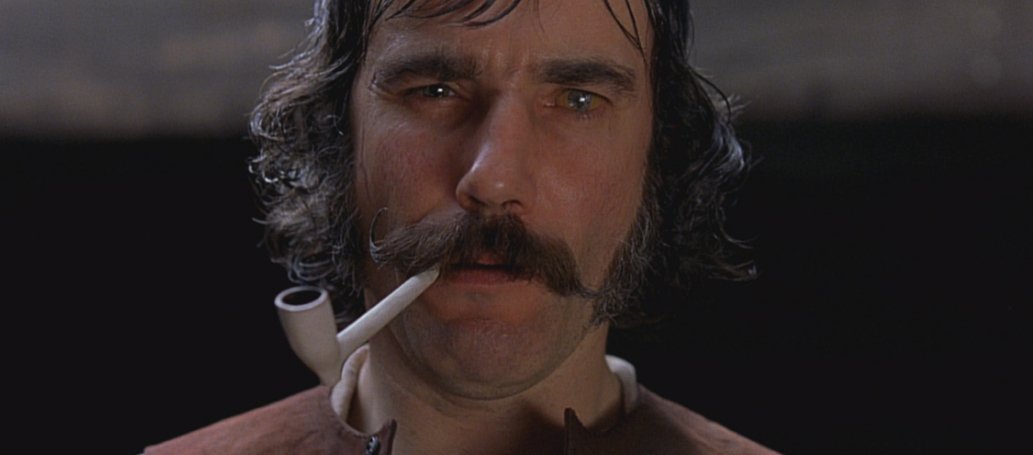An interesting choice of words from film editor extraordinaire Thelma Schoonmaker, who has worked with Martin Scorsese ever since her landmark work in 1980’s “Raging Bull.”
Schoonmaker says that Scorsese and herself have fought the studios on every single one of their films to avoid them being changed. She claims that they’ve had Final Cut on all of them (which isn’t true):
Marty would burn the film rather than give it up. We would win, but it would be a long, hard battle.
I know Scorsese has fought tooth and nail on many of his films, some of the stories are the stuff of legend, but I can think of one particular instance where they actually lost the battle. It was in 2002 on “Gangs of New York,” with the assaultive nature of Harvey Weinstein sadly prevailing. Why didn’t Scorsese burn the film then?
It’s no secret that the biggest battle Scorsese had with a studio was against Weinstein’s Miramax on that film. Last September, when asked about Weinstein’s interference, Scorsese admitted to a creative struggle that clearly still haunts him to this day.
“I realized that I couldn’t work if I had to make films that way ever again,” Scorsese told GQ. “If that was the only way that I was able to be allowed to make films, then I’d have to stop. Because the results weren’t satisfying. It was at times extremely difficult, and I wouldn’t survive it. I’d be dead. And so I decided it was over, really.”
“I just said, ‘I’m no longer making films,'” Scorsese said of the experience. Yet it was “The Departed” in 2006 that led Scorsese to realize “I can’t work here anymore” after Warner Bros. tried to make it into a “franchise.”
I’ve always admired “Gangs of New York,” but I will admit that as I watched it, in the fall of 2002, there was a sense that something much grander, and greater was missing from the film. Daniel Day-Lewis’ towering performance as Bill the Butcher hid the flaws very well — maybe his greatest performance ever, up there with his Daniel Plainview in “There Will Be Blood.”
The original cut of “Gangs of New York,” which was shown to a few journalists in late 2001, including Hollywood-Elswhere’s Jeffrey Wells, must still be hidden in a vault somewhere. It was said to be over 3 1/2 hours in length. The theatrically released version was 10 minutes short of 3 hours.
Wells reported that the behind-the-scenes battle between Scorsese and Weinstein ended with “a polished, cleaned-up version of the ‘Gangs’ being released in December of 2002” and not the one he had exclusively seen in 2001.
“The work-print version [I saw] is longer by roughly 30 minutes, and more filled out and expressive as a result, but that’s not the thing. The main distinction for me is that it’s plainer and therefore more cinematic, as it doesn’t use the narration track that, in my view, pollutes the official version. It also lacks a musical score, with only some drums and temp music,” Wells wrote.
He added, “I don’t believe Scorsese for a second when he says the theatrical version coming out this Friday is the one that bears his personal stamp of preference. My guess is that Harvey’s mitts are all over this puppy. Scorsese may have his weaknesses or indulgences as a filmmaker, but he’s always let his films play at their own pace and allow them to be true to themselves — their own tempo, themes, moods. He’s used narration before, but never in such a way that the narration wound up feeling like an encumbrance. And he’s never been one to speed his films up when they weren’t working.”
Harvey Weinstein, the authoritarian that he was, even bragged at a TIFF dinner that he meddled with Scorsese’s vision:
“So Marty presents the final cut of the movie to me as a final-cut director and it’s three hours and thirty-six minutes,” Weinstein revealed to Vulture. “If you thought there was action in ‘Gangs of New York’ the movie, you should have seen that editing room! But we got the movie down to two hours and 36.”
So, almost a whole hour snipped off. Supposedly, Scorsese’s 216-minute cut had no narration either. Will it ever be released? I sure hope so, but Scorsese has never been one who liked extended cuts; the version released was the final version, but making an exception for ‘Gangs’ would be a much welcomed addition to his filmography.






